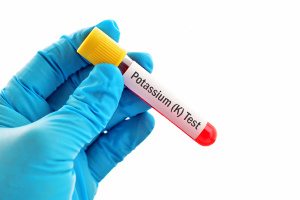Higher potassium intake may inhibit men’s loss of muscle mass
 Loss of muscle mass may be a result of a number of factors such as lack of exercise, too little protein, and ageing. Insulin resistance and acid accumulation are also related to loss of muscle mass, and it looks as if increased intake of vegetables with potassium, a base-forming mineral, is linked to decreased loss of muscle mass in men – but not in women.
Loss of muscle mass may be a result of a number of factors such as lack of exercise, too little protein, and ageing. Insulin resistance and acid accumulation are also related to loss of muscle mass, and it looks as if increased intake of vegetables with potassium, a base-forming mineral, is linked to decreased loss of muscle mass in men – but not in women.
Skeletal muscle is of vital importance to muscle strength, skeleton protection in connection with falls, and metabolic processes. After 30-40 years of age, we lose around 3-8 percent of our muscle mass per decade. The loss speeds up by 15 percent per decade after we reach 70 years. Although ageing processes play a role in the loss of muscle mass there are great variations, and it appears that loss of muscle mass is multifactorial.
It is a fact that men lose muscle mass at a faster rate than women and that may be a result of hormonal differences. Lack of physical activity, lack of certain nutrients, and chronic diseases are also linked to loss of muscle mass. The same goes for insulin resistance where cellular glucose uptake is impaired, and mild metabolic acidosis, which is a disturbance of the body’s delicate acid-base balance in blood and tissue. In other words, if acid accumulates in muscle tissue and muscle cells are unable to take up sufficient glucose from the blood, it may have a negative impact on the maintenance of both muscle mass and muscle strength.
Loss of muscle mass may have serious consequences
Loss of muscle mass and muscle strength results in a condition called sarcopenia, which is particularly common among seniors and is typically associated with changes to the figure with characteristic features such as thin extremities and a paunch.
Not only does reduced muscle mass result in impaired muscle function and an increased risk of fractures and complications in connection with falls, it also increases the risk of comorbidities such as insulin resistance, metabolic syndrome (an early stage of type 2 diabetes), cardiovascular diseases, and impaired quality of life. It is therefore vital to do what you can to maintain healthy muscle mass throughout life.
Potassium’s important role – even for our muscle mass
We mainly get potassium from vegetable sources such as potatoes, bananas, apples, avocados, dark leafy greens, mushrooms, almonds, and nuts. Potassium is very important for the cellular electrolyte balance and the function of nerves and muscles. Increased potassium intake may also help lower blood pressure, thereby lowering the risk of stroke.
Moreover, potassium is important for our acid-base balance and cellular insulin sensitivity. Because loss of muscle mass may be a result of mild metabolic acidosis and insulin resistance, the researchers behind the new study decided to take a closer look at potassium’s role in muscle mass. They collected data from the large Korean National Health and Nutrition Examination Survey (KNHANES, 2008-2011) study that looked at diet habits and skeletal muscle mass in arms and legs of 16,558 participants. The researchers also took various blood samples and adjusted for protein intake, BMI, physical activity, and smoking habits, all of which can influence the results. Afterwards, the participants were divided in five groups according to daily potassium intake. It turned out that the men with the highest potassium intake had a 29 percent lower risk of losing muscle mass compared to the men with the lowest potassium intake. However, the scientists were unable to detect a similar relation in women. This difference may be linked to hormonal differences. The study was published in Nutrition Journal in 2020.
|
References:
Yu-Li Lee et al. Potassium intake, skeletal muscle mass, and effect modification by sex: data from the 2008-2011 KNHANES. Nutrition Journal 2020
aB-Syre-Base status - Patienthåndbogen på sundhed.dk
Search for more information...
- Created on .








